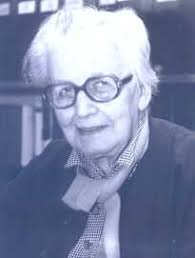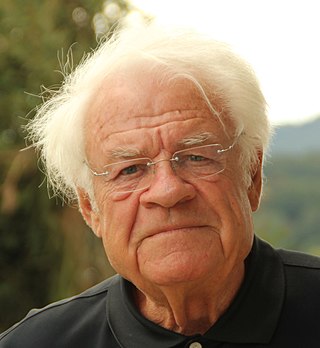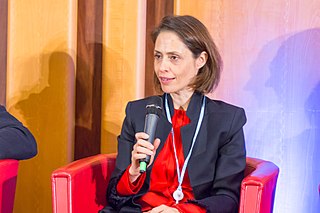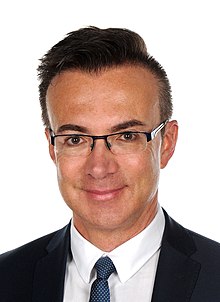
RWTH Aachen University, in German Rheinisch-Westfälische Technische Hochschule Aachen, is a German public research university located in Aachen, North Rhine-Westphalia, Germany. With more than 47,000 students enrolled in 144 study programs, it is the largest technical university in Germany.

Johann Christian August Heinroth was a German physician and psychologist who was the first to use the term psychosomatic. Heinroth divided the human personality into three personality types in his scholarly papers and published books in the 1800s, describing the Uberuns (conscience), the Ich and the Fleish.
Rudi Balling is a German geneticist. He is the founding director of the Luxembourg Centre for Systems Biomedicine at the University of Luxembourg (2009-2021) He has served as president of the International Mammalian Genome Society and as co-editor of the Annual Review of Nutrition since 2018. In 2016 Balling received Luxembourg's Ordre de Mérite (Commandeur) from Prime Minister Xavier Bettel.

Heribert Offermanns is a German chemist and former member of the board of the Degussa AG.

Martin Zenke born August 7, 1953, in Korbach is a German biochemist, cell biologist, professor for cell biology and scientist, who is conducting research on stem cells and biomedical engineering.
Fuat Shamoun Oduncu is a German hematologist, oncologist and biomedical ethicist. He is professor for medicine at the Ludwig Maximilian University of Munich (LMU) and known for his work in the fields of oncology, palliative care, medical ethics and health economics.

Frank Hölzle is a German surgeon. He is a professor of oral and maxillofacial surgery at the RWTH Aachen University. He is chairman and head of the Department of Oral and Maxillofacial Surgery. Hölzle is known for his work in the fields of plastic facial reconstruction with a focus on micro surgery. He is also specialised for the treatment of tumor diseases in the head and neck region, and of malformations like cleft lip and palate.

Christiane Woopen is a German medical ethicist. She was appointed Professor for Ethics and Theory of Medicine at the University of Cologne in 2009. There she is Executive Director of ceres, an interdepartmental institution created by the Rector and five of the six Faculties of Cologne University. Furthermore, she is Head of the Research Unit Ethics at the Faculty of Medicine and was from 2011 to 2019 Vice-Dean for Academic Development and Gender of that Faculty. From 2012 to 2016 she was Chair of the German Ethics Council and from 2014 to 2016 President of the Global Summit of National Ethics/Bioethics Committees. She has been portrayed by various periodicals.
Claudia Wiesemann is a German medical ethicist and medical historian. She is full professor and head of the Department of Medical Ethics and History of Medicine at Göttingen University Medical Center. Being a member of the German Ethics Council since 2012, she was elected Deputy Chair in 2016.
Georg Axhausen was a German oral and maxillofacial surgeon.
Florian Steger is a German medical historian and medical ethicist.
Thomas Schlich is a German-Canadian historian of medicine known for his work on the history of surgery.

Doris (Elfriede) Schachner née Korn was the first female German professor for Mineralogy and Honorary Senator of the RWTH Aachen University.

Wolfgang Kuhlmann is a German philosopher and representative of the discourse ethics.

Elisabeth Hermine Winterhalter was a German gynecologist, surgeon, feminist and patron of the arts. She was one of the first female doctors and the first female surgeon in Germany. The painter, Ottilie Roederstein, was her long-time companion.

Eftychia ("Effy") Vayena is a Greek and Swiss bioethicist. Since 2017 she has held the position of chair of bioethics at the Swiss Institute of Technology in Zurich, ETH Zurich. She is an elected member of the Swiss Academy of Medical Sciences.

Wolfgang Huber is a German specialist in internal medicine, nephrology, and environmental medicine.
Stephan Zipfel is a German professor for psychosomatic medicine at the Eberhard Karls Universität Tübingen. He is currently Chair and Head of Department of Internal Medicine VI at the University Medical Hospital in Tübingen and Vice Dean of the Medical Faculty. He specializes in eating disorders and is the Director of the Centre of Excellence for Eating Disorders (KOMET) at the University Hospital.

Elmar Nass is a Catholic priest, theologian and a teacher of economic ethics. He holds the chair of Christian Social Sciences and Social Dialogue at the Cologne University of Catholic Theology (KHKT).












